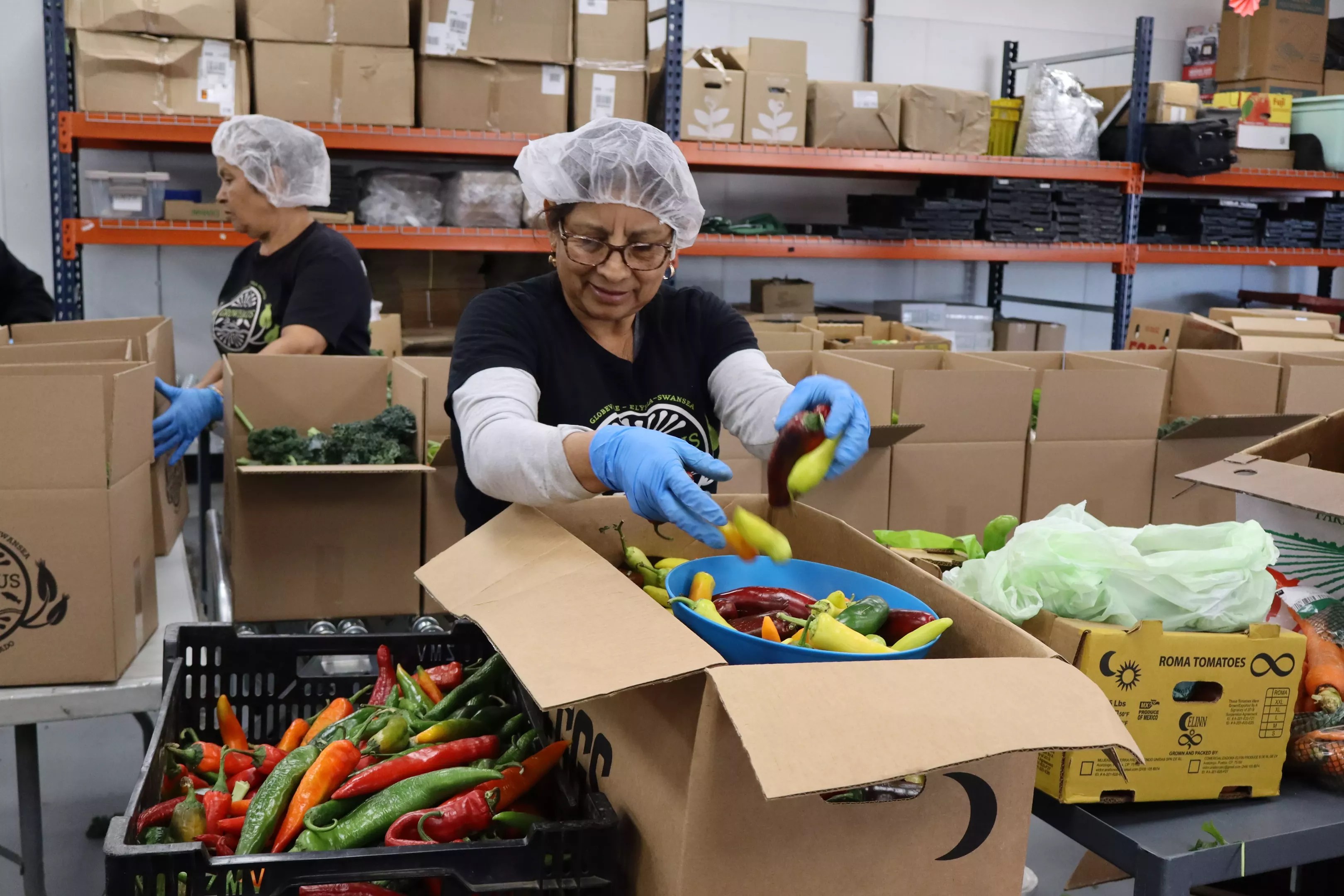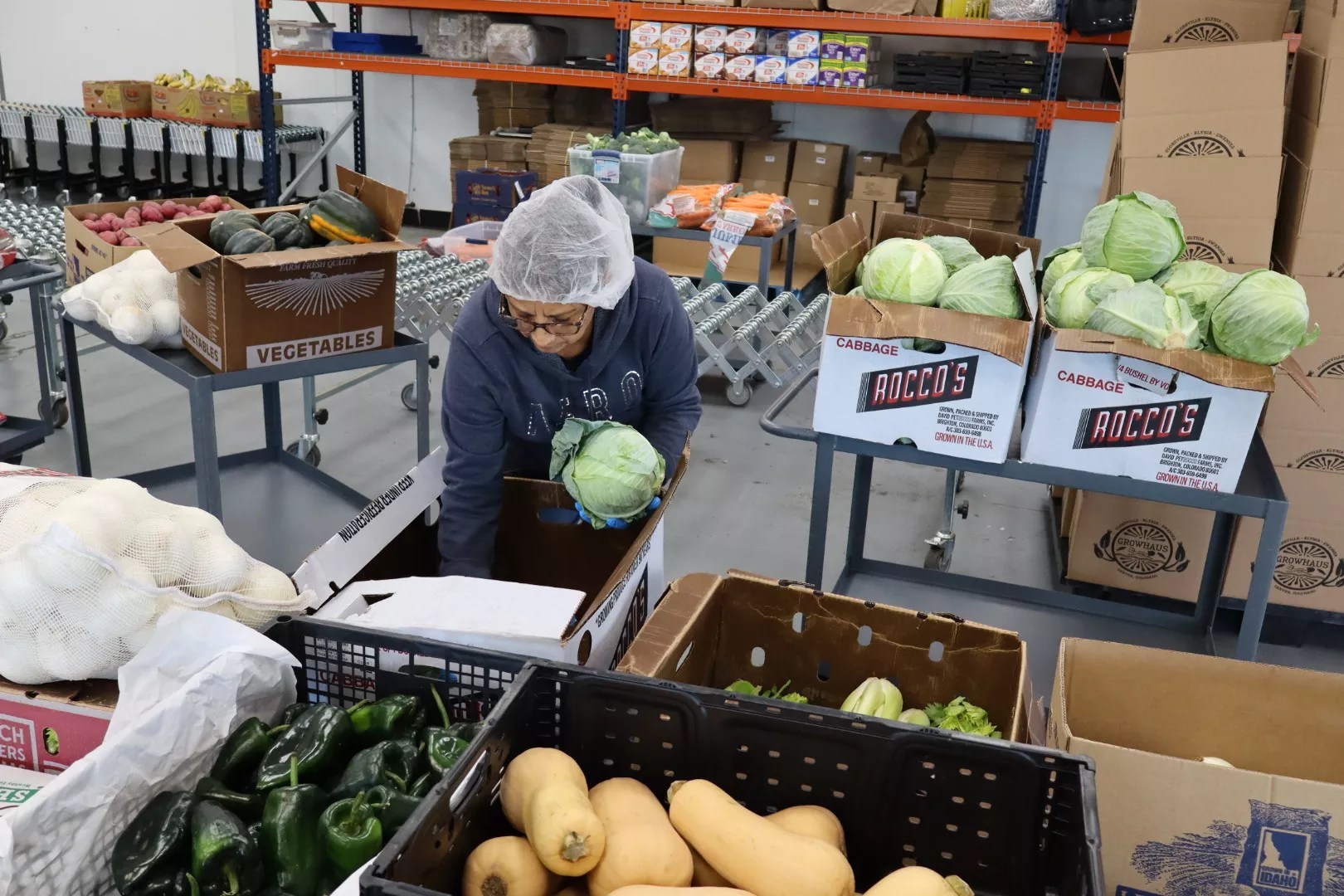
The GrowHaus

Audio By Carbonatix
“All humans connect around food. That’s the one thing that unites us, regardless of politics or rhetoric or the noise we hear these days,” says Giselle Diaz Campagna, executive director of the GrowHaus. The universal right to food is the founding principle that defines the nonprofit organization, which has been working to eliminate food injustice in Denver since 2009.
The GrowHaus engages in consistent outreach through its 26 food access points across the metro area. Every week, it provides fresh produce, free of cost, to thousands of individuals in the city’s most food-insecure areas, including Globeville and Elyria Swansea. It also facilitates multiple community outreach and youth-focused programs that provide nutritional education and hiring opportunities.
Last month, the GrowHaus was one of just twenty organizations nationwide – and the only one in Colorado – to be awarded the prestigious USDA Community Food Projects Competitive Grant. The funds, Campagna says, will go toward expanding partnerships with local farms and increasing the amount of produce the organization can offer to the community through its markets. “It’s really exciting to be seen as an initiative that is worthy of these investments. I think that is changing the way we look at community-led organizations,” she notes.
The market pop-ups occur multiple times a week and are available only to the 400 families currently participating in the nonprofit’s no-cost program. “We are understanding the power that we have every single day [through] micro-actions and collective collaboration and collective contributions, that we are changing each other’s lives. We are changing the course of families,” Campagna says.

The GrowHaus’s markets serve hundreds of families.
The GrowHaus
After structural issues led to the indefinite closure of its former headquarters in 2020, the GrowHaus has had to take a different approach to serving the community. The organization’s goal, Campagna says, has never been just to provide, but to be in sync with the rhythm of these communities and to identify the soft spots where help is needed. “In order to say you’re community-led, you really have to invest in the telling of our history and the retelling of our lessons,” she notes.
Campagna is baffled by the rising prevalence of food insecurity throughout the nation. One in three Coloradans currently faces food insecurity, a statistic that has been accurate since 2021. “Why is it that there’s all these millions and billions of dollars poured into an economy, but then the benefit is really more on the top level, still, and not trickling down to the community, to people?” she asks.
Part of the GrowHaus mission is to create a replicable template that can be used at the local level in food-insecure areas across the nation. Campagna calls for a problem-solving framework that originates from the perspective of those in need rather than the top-down angle. “A lot of these things are on a sort of systemic Band-Aid level,” she explains, “but they’re not really addressing the mom who has two jobs and has to take a bus to take the kids to school.”
The GrowHaus team is constantly experimenting, engaging with the community and gathering data to determine the best ways to help those in need. Its dedication to this cyclical model is what has allowed it to grow over the past fifteen years – and to amass a thriving community of participants in the metro area.
To learn more about the GrowHaus, including ways to get involved, visit thegrowhaus.org.